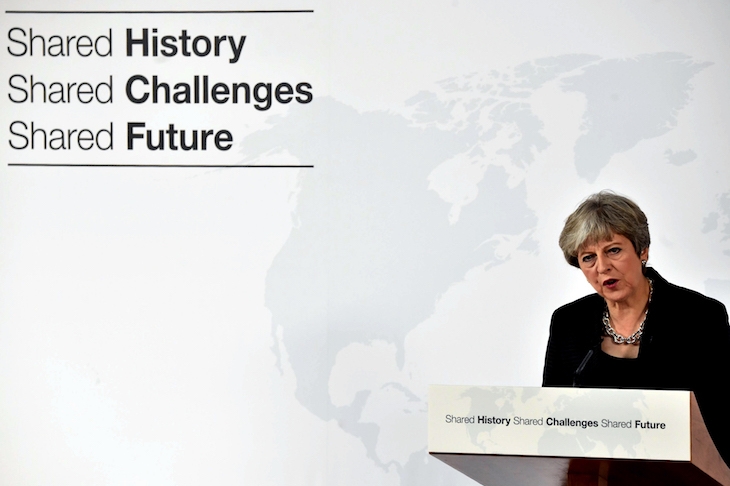The well-known saying goes, ‘there is nothing to fear but fear itself’. This certainly should be the mantra of Brexit. Disruptive as it might be, Brexit should be the reset button for an enterprise economy, a bright new future of growth and entrepreneurialism, open and free markets – in effect a ‘New Model Economy’ – but few are making the case for this. Certainly, the government isn’t.
When I became director general of the British Chambers of Commerce over six years ago, one of my first media interviews led me to say that I thought there was no political party in the UK that truly represented business. By that I meant enterprise and entrepreneurialism.
To put it crudely, the Conservatives represent capital in the form of the established part of the city and landowners (a significant proportion of the land in England is still owned by the descendants of William the Conqueror) and the vested interests of multinationals.
The Labour Party remains dominated by the unions and their would-be oligarch bosses, while the Liberal Democrats are professionals – teachers, dentists and the like – but not entrepreneurs.
Who in politics speaks for the small business person, for the mid-sized family firm, for the tech entrepreneur, for the tradesman, for the 87 per cent of the economy which is not dependent on exports to the EU? As far as I can see, nobody.
I also famously said at a BCC conference that you could fire a shotgun in the House of Commons and not hit anyone who had been in business. I got no complaints from Labour or the Lib Dems, but a great deal of complaint from the Tories, which was only justified if you counted internships or being in PR as being in business.
All of this has been brought into sharp focus by Brexit.
It seems that the current administration is a rabbit frozen in headlights, captured by vested interests and unable to put the case for a post-Brexit enterprise economy. So captured are they, in fact, that they appear prepared to acquiesce to an inferior version of what we have now, a wreck salvaged from the rubble of our current economic model.
Whereas risk-taking entrepreneurs would embrace opportunity and generate enterprise, the government seems hell bent on accommodating the protectionist, anti-competitive rentiers of the CBI hierarchy and vested interests of the incumbent elements of the City, in harness with the landed classes, who continue to benefit from CAP subsidies, a sort of welfare for the rich.
The inability of the Conservative Party to engage enterprise was never better demonstrated than by their election manifesto. Not only was it absent of any meaningful business stimulus, it was profoundly ignorant, failing to recognise that we can only create wealth, compete in the world and fund public services through enterprise. Where were the tax breaks for R&D and investment? Anything to address the crushing distortions of the business rates system? The necessary investment in infrastructure? They were all conspicuous by their absence. Why were the government not embracing the post-Brexit world and aiming to recreate the UK as a superior version of Singapore?
Are Labour complaining about this? Not at all. Instead they are seeking to defend and promote the oligarchy of union power, mainly public sector and not at all aligned with hard work, enterprise and self-help. They find their cheerleaders amongst the louche intelligentsia, who prefer sanitised virtue signalling over solutions to the problems of their fellow countrymen. It is much easier to engage in vacuous talk at the supper table about ‘saving the planet’, or problems in far-off places, than deal with the realities of the over 500,000 unemployed under-25s.
The Lib Dems hardly deserve a mention, denying democracy by refusing the referendum and illiberally seeking to dictate the reversal of Brexit.
Perhaps entrepreneurs should say ‘a plague on all your houses’.
If any of these parties are to regain the respect of the 85 per cent of the population who voted to leave the single market at the last election, or the 70 per cent who say in the polls that we should get on and Brexit, and if necessary leave with no deal, then that is what they should do.
In so doing, the aim should be to make us wealthier as a nation than we would have been by staying in the EU. This is entirely within the gift of the government, but they must stop obsessing about a free trade agreement and instead concentrate on realising the real benefits of Brexit. They must ignore the vested interests and put the nation first. They must be resolute and have courage. They must make the case for a new model economy.
The Prime Minister’s Florence speech sought to do exactly the opposite and sets us on course for the very worst anti-enterprise deal. Theresa May gave, and asked for nothing. The EU will wait for more. In delaying leaving the EU she has delayed all of the economic benefits of Brexit – free trade, tariff removal, deregulation, tax breaks for R&D and investment, tax cuts for business, reform of the CAP and fisheries – perhaps for ever. In return we get to pay, but have no say in EU affairs. It’s a truly laughable negotiating position. Instead we could have the absolute certainty of a post-March 2019 enterprise economy, entirely in the gift of the government.
Will there ever be a party of entrepreneurialism and enterprise?
I am not holding my breath.
John Longworth is co-chair of Leave Means Leave.






Comments